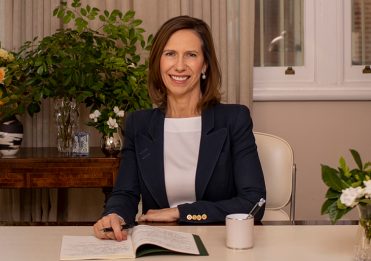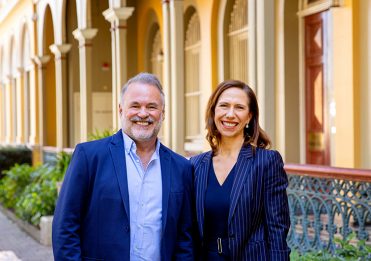Recognising BGGS as one of forty schools around Australia who are leading the way in their efforts to best prepare students for tomorrow’s world, the award specifically commends the School’s record of attracting and retaining students’ interest in science.
Discussion and debate surrounding the concept of ‘innovation’, and the role of schools in developing it, continues to build momentum. The Federal Government released a report in July—Innovation and creativity: workforce for the new economy—and together with other reports, such as the one released by PwC earlier this year—Education will be the engine room of Australia’s future prosperity—there appears to be ever increasing emphasis on ‘innovation’.
What does ‘innovation’ mean? One of the challenges with innovation is that there is little agreement on what it actually is, and most importantly, its relevance to schools, including Girls Grammar.
In my view, innovation does not always need to be ‘showy’, rather it is about doing things perhaps only slightly differently, but authentically, and then incrementally over time positive developments emerge. Being innovative, like being curious and creative, is probably innate in all of us, however, it can be deliberately nurtured and harnessed through structures that create a democratic, open-minded learning environment where diversity of thought is encouraged and there is space to reflect. Making the occasional mistake must always be tolerated, of course; in good learning experiences we learn, often most profoundly, through our mistakes. Likewise, in the development of resilience, failure—from time to time—is essential.
We are aware that there is much more to a Girls Grammar education than preparing a ‘workforce for the new economy’ and are proudly ‘non-vocational’ in our approach to a broad, liberal education. Firm believers in the importance of a holistic environment—where there is rigour in learning, depth in the acquirement of knowledge and ever-increasing sophistication in the development of girls’ ability to think critically, creatively and with confidence—we know that Grammar girls will be very well prepared for tertiary study and the world of work beyond that.
The ideas expressed in PwC’s paper, Education will be the engine room of Australia’s future prosperity, are borne out in the experience of our School. The paper stresses the importance of developing ‘higher-order thinking skills, social intelligence, the ability to work with diverse groups of people and a commitment to lifelong learning’. We are well aware that our goal is not ‘simply to impart learning’. Rather, we seek to build the qualities, referred to in the PwC report, that will ‘enable students to contribute to the overall wellbeing of our society—skills and attributes such as confidence, teamwork, problem-solving, aspiration and a love of learning’. Grammar girls will become Grammar women who do just that; educated to live fulfilling lives, they will be significant contributors to a good and just society.
Being recognised as one of Australia’s most innovative schools for our record of attracting and retaining science students is testament to our dedicated, specialist science teachers and the School’s out-of-classroom programs that embed deep learning by inspiring curiosity and a passion for new discoveries in science.
For example, through the Translational Research Institute, Year 11 students have this year worked alongside biomedical professionals on real-world research projects. It is a robust environment for expanding and deepening students’ theoretical and experimental research, while producing work that may contribute to medical advances.
Next month, we will unveil a remotely operated, robotic telescope and observatory, with four world-class, professional-level telescopes being installed at Marrapatta. It is envisioned that the observatory will have a transformative impact on teaching and learning by opening up the intrigue and seemingly infinite possibility of deep space to all students.
The telescopes and observatory will have applications in Physics, Mathematics, ICT and Visual Art, as well as in other subjects, increasing opportunities for Girls Grammar to partner with other schools, universities, and scientific and commercial organisations.
So, running counter to much of the discourse around the need to encourage women and girls into science, the study of science thrives at Girls Grammar. In 2016, more than ninety per cent of the Year 12 cohort studied one or more science subjects and of that group, more than forty per cent are now undertaking a science-based university degree.
Scientific knowledge has been one of the cornerstones of a broad, liberal education throughout the School’s 142-year history and innovation in the way we teach it has helped to foster the exceptional scholarship for which we are renowned.
Congratulations, BGGS, on receiving this well-deserved 2017 Innovative Schools award.
Ms Jacinda Euler
Principal



